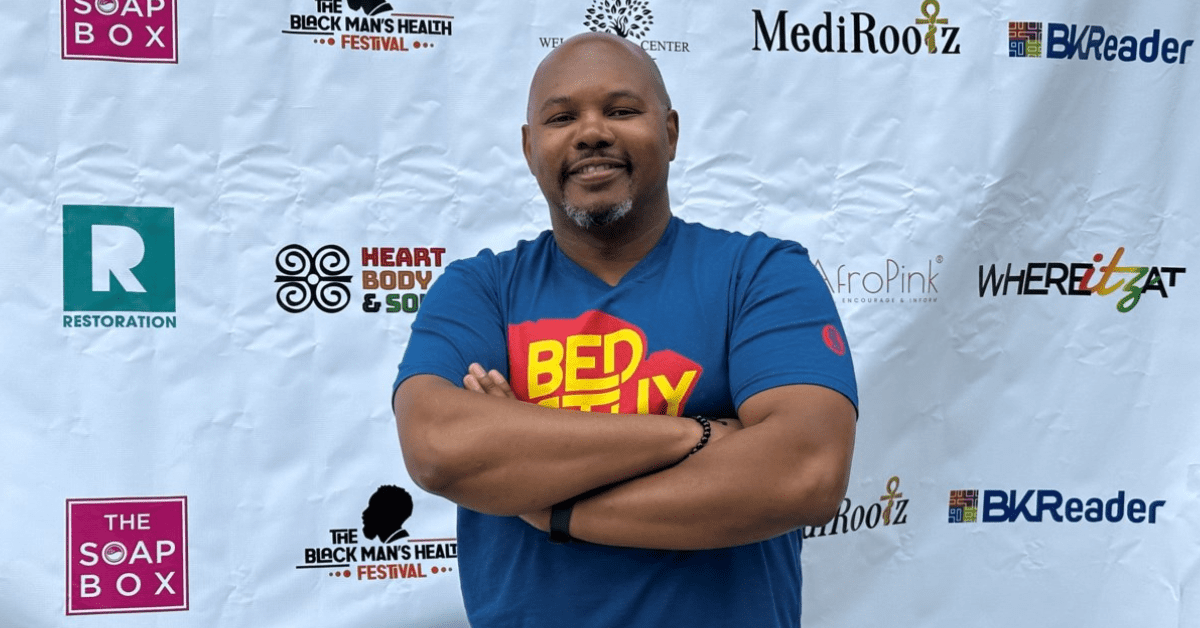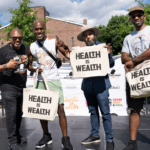At 42 years old, Christopher Williams was in the gym nearly every day. Fit, disciplined, and seemingly thriving, he never expected that beneath the muscle and momentum, his heart was failing. What began as unexplained fatigue quickly turned into a life-altering wake-up call—a heart attack that would change the trajectory of his life.
“Looking back, my body was giving me signals,” he said. “But I brushed them off. I thought I was just tired from work or working out too hard. I didn’t know I was walking around with 98% blockage in my artery.”
Fatigue, shortness of breath, and even subtle changes in endurance can be early warning signs of heart disease, especially in Black men, who often push through physical symptoms until it’s too late.
A heart attack, also known as a myocardial infarction, occurs when blood flow to the heart is severely reduced or blocked, typically due to a buildup of plaque in the arteries. For Black men, the risk is especially high, with research showing that Black adults are nearly 30% more likely to die from heart disease than non-Hispanic white adults. High blood pressure, often undiagnosed or untreated, is more prevalent in Black men, increasing the risk for heart attack and stroke.
That heart attack was the first of four.
Then came another gut punch: a diagnosis of stage III appendiceal cancer, a rare and aggressive disease that arrived like an ambush just when he’d begun to recover. Appendiceal cancer, which forms in the appendix, is rare and often discovered incidentally or in later stages. While there is limited race-specific data for this cancer due to its rarity, what we do know is that Black people are more likely to be diagnosed with late-stage cancers across the board, due to delayed screenings, limited access to specialty care, and structural barriers in the healthcare system.
For Chris, this meant advocating for a second opinion and navigating both cancer treatment and cardiac recovery simultaneously, a reality many Black people face when their health concerns aren’t taken seriously the first time. Between surgeries, blood infections, chemotherapy, and cardiac rehab, Chris’ body endured more than most face in a lifetime. But what stayed with him, more than the physical scars, was the emotional toll: the moments of cold delivery from medical staff, the absence of culturally responsive care, and the quiet, aching loneliness of recovery.
“I felt like I was disappearing inside a system that wasn’t built for me,” he said. “That’s when I knew, something had to change.”
In communities that have historically been overlooked or mistreated by the healthcare system, bedside manner isn’t just a nicety; it’s a necessity. For Black people in particular, studies show that poor communication and dismissive attitudes can lead to delayed diagnoses, treatment refusal, and overall mistrust in the system. When a provider takes time to listen, explain clearly, and respond with empathy, it doesn’t just improve satisfaction; it improves outcomes. As Chris experienced firsthand, the difference between feeling like a patient and feeling like a problem can come down to how a practitioner speaks to you in your most vulnerable moments.
And so, Heart, Body & Soul was born. Not just as an organization, but as a radical act of restoration.
Founded in 2022, Heart, Body & Soul is Chris’ answer to a question too many Black men silently ask: Who is looking out for us? With a mission to provide access to quality care, foster brotherhood, and create spaces where health isn’t just physical but emotional and spiritual too, the organization is rewriting the script on what healing can look like.
Its flagship initiative, the Black Man’s Health Festival, is a celebration of care reimagined, complete with healing circles, yoga, tapping therapy, a self-care lounge, and a sanctuary for wellness services. Screenings are available, but as Chris puts it, “The goal is to help Black men feel seen—not just scanned.” The event’s power lies not in blood pressure readings but in the reclaiming of dignity, rest, and recognition.
Backed by a community that poured love into him, bringing acupuncture, plant-based meals, and hands-on healing to his doorstep, Chris now pays that love forward. And he’s doing so with clarity: Heart, Body & Soul isn’t just a nonprofit. It’s a mirror, a movement, and a message to every Black man who has ever suffered in silence:
You are not alone.
You deserve to be whole.
And your healing is sacred.








